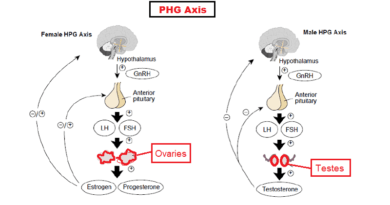The Lymphatic System Importance for Optimal Health
Last Updated on 07/27/2023 by Helal Medical
One of our crucial systems that often goes unnoticed is the lymphatic system which has vital importance for its role in maintaining the body’s health. It is responsible for carrying lymph fluid, which contains white blood cells, throughout the body. It also helps the body fight infections and diseases by producing immune cells that attack and destroy foreign invaders. In this article, we will explore the following key points:
- What is the Lymphatic System?
- Components of this System
- Functions
- Common Health Issues
- Diagnosis
- Tips for Maintaining a Healthy System
What is the Lymphatic System?
It’s made up of several components, including lymph nodes, lymphatic vessels, the spleen, the thymus, and the tonsils. Lymph nodes are small, bean-shaped structures that are located throughout the body, with concentrations in the neck, armpits, groin, and behind the ears. They act as filters, trapping bacteria, viruses, and other harmful substances before they can hurt our body. Lymphatic vessels are similar to blood vessels, but they carry lymph instead of blood.
Organs of the Lymphatic System
1- The spleen
It is the largest organ in this system and is located in the upper left side of the abdomen. It helps filter blood, removing old or damaged red blood cells and producing white blood cells that help fight infections.
2- The thymus
The thymus is located in the chest and plays a vital role in the development of immune cells known as T cells.
3- The tonsils
They are located in the throat and help prevent infections by trapping and destroying bacteria and other harmful substances.
Common Health Issues Related to the Lymphatic System
When the lymphatic system fails or becomes damaged, it leads to a range of health issues. Here are some common conditions related to the lymphatic system:
- Lymphedema:
This condition occurs when the lymphatic vessels become damaged or blocked, causing fluid to build up in the arms or legs. This causes swelling, discomfort, and limited mobility. - Infections:
Infections can affect the system, causing swollen lymph nodes, fever, and other symptoms. Examples include strep throat, mononucleosis, and tuberculosis. - Cancer:
Lymphoma and leukemia are types of cancer that affect this system, causing abnormal growth in the lymph nodes or other lymphatic tissues. - Autoimmune Disorders:
Some autoimmune disorders, such as lupus or rheumatoid arthritis, can cause swollen lymph nodes. - Primary Lymphedema:
This is a rare genetic condition where the lymphatic system does not develop properly, causing swelling and other symptoms.
Functions
When the lymphatic system is functioning correctly, it helps protect the body from infections and diseases. However, when the system is compromised or damaged, it can lead to a range of health issues. For example, lymphedema is a condition in which the lymphatic vessels become damaged or blocked, leading to swelling in the arms or legs. Lymphoma is a type of cancer that affects the lymphatic system, causing abnormal cell growth in the lymph nodes or other health tissues.
Diagnosis
Diagnosing lymphatic system problems is not easy, but there are several laboratory tests and medical procedures that may help in diagnosing the cause:
- Complete Blood Count (CBC):
A CBC can provide valuable information about the condition. An abnormal CBC may indicate an infection or disease that is affecting the system. - Blood Chemistry Tests:
These tests measure the levels of various substances in the blood, including electrolytes, glucose, and liver function markers. Abnormal levels of these substances may indicate a problem. - Lymph Node Biopsy:
If your doctor suspects that a patient’s lymph nodes may be cancerous or infected, He may request a biopsy to collect a small sample of tissue. The tissue can then be examined under a microscope to determine if there are any abnormalities. - Lymphangiogram:
It is a specialized imaging test that can help identify problems, such as blockages or damage. During a lymphangiogram, a contrast dye is injected into the lymphatic vessels, and X-rays are taken to visualize the lymphatic components. - Lymphocyte Transformation Assay:
A specialized blood test helps diagnose certain immune system disorders, such as autoimmune diseases. The test measures how well a patient’s lymphocytes respond to specific substances, such as a virus or bacteria.
Tips for Maintaining a Healthy Lymphatic System
Maintaining a healthy lymphatic system is essential for overall health and well-being. Some things you can do to support your it include staying hydrated, exercising regularly, eating a healthy diet, avoiding smoking and excessive alcohol consumption, and practicing good hygiene to reduce the risk of infections. If you’re experiencing any related symptoms, such as swelling, tenderness, or fever, it’s important to speak with your doctor to determine the underlying cause and develop an appropriate treatment plan.
SUMMARY
The lymphatic system, which has great importance for our body, is an essential part of the immune system, responsible for carrying lymph fluid and producing immune cells to fight infections. This article explores this system, its components and functions, common health issues, and tips for maintaining it healthy. If you experience any of the above health conditions, you should seek medical assistance for the correct diagnosis and to get the proper treatments.
If you have questions you can drop them below in the comment section. You can contact us here: Google page – Helalmedical, or Facebook page. We offer quick and convenient testing options.
Discover more from Helal Medical Manila
Subscribe to get the latest posts sent to your email.



